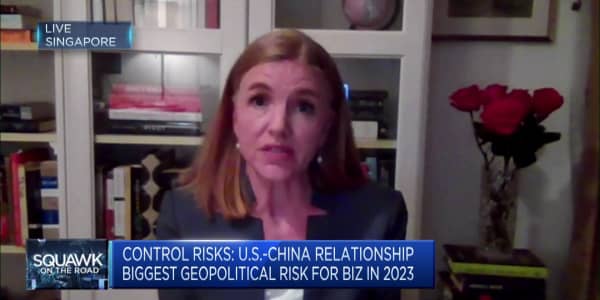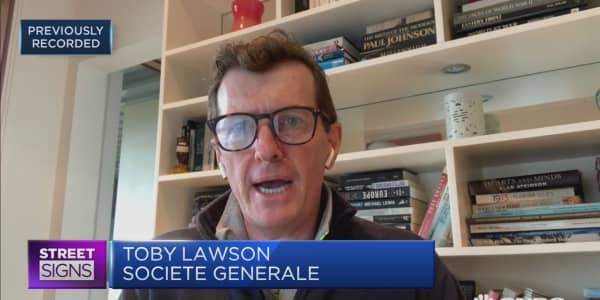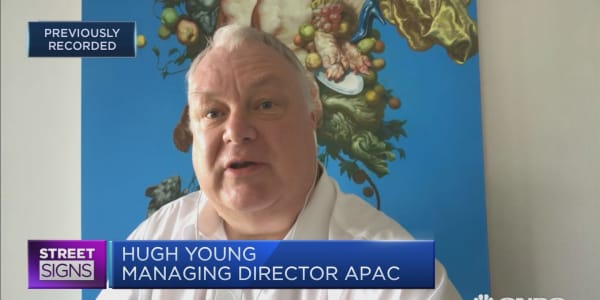Cocaine smuggling and gun running may be the traditional vocations of Mexico's cartels, but criminal activity in the energy sector is on the rise, leaving oil majors weighing the risks of venturing into a country that is now ripe for foreign investment.
Mexican oil has been opened up to global firms after a 76-year monopoly by state-owned petroleum firm Pemex. The country is the world's tenth-biggest producer of the commodity, according to the International Energy Agency, and will begin to auction off its resources from the beginning of next year, with eager majors already signing non-commercial "cooperation" agreements with Pemex.
ExxonMobil, Malaysia's Petronas, India's OGNC and Argentina's YPF are four companies that have recently inked deals to explore business opportunities in the country, but 154 oil companies from 34 countries were present at an industry conference on the beaches of Cancun in September.
'Rich, violent, immoral'
Pemex hopes that the industry reforms - signed into law by President Enrique Peña Nieto in 2014 - will bring in $80 billion annually. The excitement for Mexico and the oil majors is clear - but anxiety is just as evident.
Read MoreMexico to receive major economic jolt, experts say
Criminal organizations are likely to capitalize on the developments by stealing – and selling – the oil, according to Juan Carlos Boué, senior research fellow at the Oxford Institute for Energy Studies and a former employee of the international trading arm of Pemex.
Pipeline tapping is "prevalent" in Mexico, he said last week, speaking at an event at the International Institute for Strategic Studies (IISS) in London. He also highlighted anecdotal evidence that suggested criminals park tankers in the middle of the oil fields and force government employees to fill them up.
"Compliance tends to be absolute for very good reasons," Boué added.
Pemex statistics, given at the IISS meeting, revealed that criminal groups stole over $1 billion in hydrocarbon resources during 2012 and 2013. They also showed that illegal taps into state-owned pipelines had increased by one third over the year to date, compared to the same period last year, with total losses of around $1 billion.
"For a criminal organization this is a huge business...it has become a huge side business for the drug cartels," said Gustavo Mohar, CEO of risk analysis firm Grupo Atalaya, which is based in Mexico City. "They are not motivated by political things, ideological things, it's simply money… Rich, violent, immoral, without limits."
Read More
Formerly a public servant, Mohar has had a long-standing career in national security and worked at the front line of Mexico's fight against organized crime. Speaking at the IISS event, he likened criminal activity in the country to an economic business and said its oil industry was already classed as "risky".
Extortion, kidnappings on the rise
Firearm smuggling remains a big problem in Mexico, according to Mohar. Cartels cross the border into Texas, buy AK-47 assault rifles in large quantities at stores just 30 miles from the border, before returning to Mexico, he said.
Around 87 percent of firearms seized by Mexican authorities and traced between 2004 and 2009 originated in the U.S., according the Department of Justice's Bureau of Alcohol, Tobacco, Firearms and Explosives. Mohar explained that Mexico's criminal gangs are involved in highway kidnapping, distortion and have now diversified into oil theft.
Read MoreThe surprising impact of plunging oil prices
Tougher military enforcement in Mexico has led to the arrests of notable cartel leaders and government data revealed that killings linked to organized crime are decreasing. But extortion and kidnappings are still on the rise, which Mohar said was down to smaller, local gangs which can be more violent. Bigger cartels try to avoid attracting attention to themselves and are more driven by money, he added.
Travel advice
Given all this, Mohar advised oil executives: "Don't travel at night, don't go to these types of nightclubs, don't go to these restaurants, and (keep) a low profile."
"Don't get nasty...don't misunderstand that you are facing very violent organizations," he added.
But Mohar highlighted a big divergence in crime across different areas in Mexico – with some places as violent as El Salvador or Venezuela, and others as calm as Washington DC or Hawaii. As a result, he implored potential investors to weigh the real risks with the negative image of the country, and argued that the benefits of doing in business in Mexico outweighed the risks.




